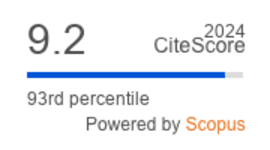An overview of the human immune system and the role of interferon regulatory factors (IRFs)
DOI:
https://doi.org/10.36877/pmmb.a0000129Abstract
The immune system consists of a dynamic network of cells, proteins, tissues, and organs that communicate to provide adequate defense responses against pathogenic agents. The immune system divide into the non-specific (innate) and the specific (adaptive) components, where the interactions between these two arms are intricately regulated. To deploy effective immune responses, immune systems comprise various cells and molecules that communicate with each other via signaling pathways coordinated by gene regulatory networks. The interferon regulatory factors (IRFs) are critical regulators of both the immune system’s development and activation of different cells. To better understand the essential components of the normal immune system, this review essentially aims to cover the current knowledge of individual components of the immune system and the important role of IRFs in regulating the immune system.
Downloads
Published
How to Cite
Issue
Section
License
Copyright (c) 2020 Ashwinder Kaur, Chee-Mun Fang

This work is licensed under a Creative Commons Attribution-NonCommercial 4.0 International License.
Author(s) shall retain the copyright of their work and grant the Journal/Publisher right for the first publication with the work simultaneously licensed under:
Creative Commons Attribution-NonCommercial 4.0 International (CC BY-NC 4.0). This license allows for the copying, distribution and transmission of the work, provided the correct attribution of the original creator is stated. Adaptation and remixing are also permitted.

This broad license intends to facilitate free access to, as well as the unrestricted reuse of, original works of all types for non-commercial purposes.
The author(s) permits HH Publisher to publish this article that has not been submitted elsewhere.



.png)

.jpg)
